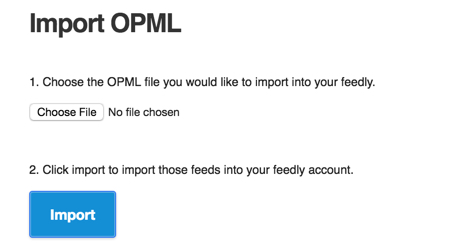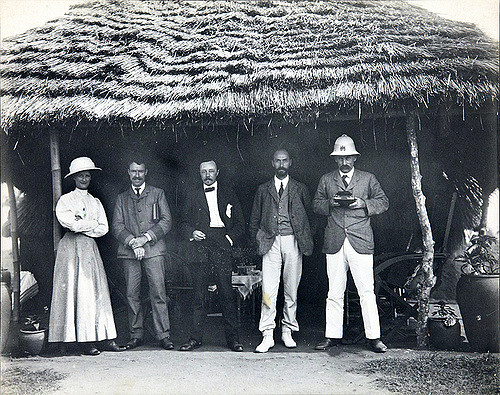Please read obligatory apology for blogging about blogging .
In the last couple of days I have considered what blogging has done for me and how, to me, blogging means being a node in a conversation not just making chronologically ordered posts to a site. I want to go on to consider blogging and the “imposter syndrome” as mentioned by Wendy and Lyndelle on Kate’s post does anybody actually care? blogging and professional discourse.
UPDATE: When I use “professional blogging” I am talking about blogging from a disciplinary view about a particular profession. I realized when I re-read the title that “professional blogging” could also refer to writing a blog as a job to make money. I am not using it this way.
Both Wendy and Lyndelle talk about feeling too new, not qualified enough, to join in the conversation by blogging, although they can see the value to the profession of blogging continuing, and in overcoming personal discomfort to do so.

DaPuglet. (2009, September 29). Pug Imposter “Pug Love.” Retrieved from https://www.flickr.com/photos/dapuglet/8426525097/
When I talk about the time that blogging takes I think that part of this time, when one is blogging in a professional space, involves evaluating one’s own risk profile and comfort levels. Given that professional blogging simultaneously creates a personal space (in that one is sole author of the web space) one has a lot of control over the formality, rigour and personality of that professional voice, and of the safety net that exists in this home space where it lives. It is somewhere where it is you who determines exactly what is a “no go” zone on the site, what is discussed, in what detail and with which attitude. The hard bit is really in finding who you want to be in the space.
Forming a professional identity is something that every successful new professional will do anyhow. Finding this professional identity involves introspection (blogging is excellent for this), interacting with other professionals (blogging is excellent for this), making sure one has correct information and is able to share this clearly using the language and concepts of the profession (blogging is excellent for this) and often developing specialised interests and expertise in one area of the profession, according to personal interests and abilities (blogging is excellent for this).
Rachel Singer Gordon discusses the “imposter syndrome” in her 2003 article about overcoming the Systems Librarian Imposter Syndrome .
Joan Harvey talks about a syndrome called “the imposter phenomenon,” in which otherwise successful individuals believe that others overestimate their talents, that their success is not due to their own ability, and that they will eventually be exposed as frauds in their position (Harvey and Katz,1985). While this syndrome occurs in people across all professions, those in positions that constantly require doing new tasks or taking on new roles are particularly susceptible to these feelings. Their cure lies in realizing that their success stems from their own abilities and actions rather than in some random or external force. The cure for systems librarians lies in realizing that, as long as they know (or can find out!) enough to keep the systems in their own institutions humming along, they are successes—and integral to the smooth functioning of their library.

Knowles, C. (2008, June 28). Playing on the Merry go round. Retrieved from https://www.flickr.com/photos/theknowlesgallery/4714085113/
Similarly, to be a successful blogger, one needs to keep a blog humming along and no more (and no less). It involves acknowledging that success or failure (if there is such a thing) in blogging is not due to any external forces, but one’s own talents and abilities.
One does need to choose to be the type of professional, or the type of blogger, that matches one’s abilities and the time one has to devote. One needs to define success in blogging or a profession on one’s own terms and find one’s own niche. No-one knows what professional success or blogging success looks like for an individual because that person is making it up, for themselves, as they go.
Personally, I am not going to win professional awards anytime soon for being most business-like dresser, or best at “working the room” or most committees served for professional organisations. I am not going to be appointed to the highest possible managerial position I can be, nor fill a job that earns me the maximum amount of money that someone with my abilities, skillset and personality could. My blog is not going to win awards for most frequent updates, breaking of original stories nor for short and snappy posts. The blog platform is created on my terms to present the type of professional that I am – competent and able in some areas, less so in others, but all of it richly me and belonging in this space I have created.
In response to Lyndelle and Wendy, Kate has written a very reassuring post about how imposter syndrome affects everyone and is very honest and generous about her own insecurities and the effect on her
Impostor syndrome can be a gag. It can cause us to sit on ideas. It stops us from blurting out the things we should blurt out. It holds us back as individuals and it holds us back as professionals and it holds our professional discourse back. It undermines our confidence in our own thinking and our capacity to make a contribution to professional conversation
In the comments on this post, Kate mentions a different approach from Kim Tairi
“I’ve flipped it & try to think of it as reflection and questioning rather than self doubt; wanting to be a better leader/boss”

I have attended a fair whack of professional conferences – as delegate, someone who has submitted a paper, as invited speaker and even done a couple of keynotes. I have seen many, many other speakers and I think I have a good measure of what is engaging and what is not. At one point, I remember sitting in the audience at a terrifically engaging, well-researched, clearly organised and interesting talk with beautiful slides and thinking “the main difference between this speaker and most of us in the audience is that s/he has put in the hard yards creating this presentation. I bet that there are a bunch of us who are kind of interchangeable, who could do a similar job if we showed the same devotion and had put in the many, many hours that this speaker has done”.
I know that I have given talks where nerves, insecurity, or maybe a desire to deliver to the people who asked me to be there, have buoyed me on to put in hours and hours of careful research, practice and preparation to be a much, much better version of me than I could ever be without the sheer hard slog of hours of work. In some ways, “imposter syndrome” may well be healthy professionally because it can force one to define what is important, what you care about, to not to be paralysed, and to do something to stop feeling like an imposter.
Reading the posts from bloggers taking part in #blogjune, where people mainly identify as Australian libraryfolk (even if they expressly do not write solely from that perspective) it is easy to see a range of voices and topics that make up this corner of the conversation. Although few voices could be classed as solely discussing disciplinary issues in a formal style, I think that most can be considered to be professional blogs to the extent that others in the profession are connecting with them, potential employers and employees form an impression of them as people and there is a mixture of (often very insightful and interesting) disciplinary discussion that is not happening in any other forum.
Being a successful part of the conversation that is professional blogging does not involve knowing it all, or reaching some ideal standard or level of disciplinary discussion. It does involve forming an identity and finding a voice as a blogger that can only really be achieved by getting in there and experimenting, in the same way that creating a professional identity involves doing something rather than sitting back and avoiding action because you are unsure. Sometimes being the one who does not have the answers but has a fresh perspective and asks the question “why?” or says “do you mean this? I don’t understand” can make people who have been spouting their mouths off for years pause, think and re-think. This is a valuable contribution.
References
Gordon, R. S. (2003). Overcoming the systems librarian imposter syndrome. Libres, 13(2). Retrieved from https://faculty.washington.edu/rmjost/Readings/overcoming_the_systems_librarian_imposter_syndrome.pdf
Harvey, J., and Katz,C. 1985. If I’m So Successful, Why Do I Feel Like a Fake? The Imposter Phenomenon. New York: St. Martin’s.











